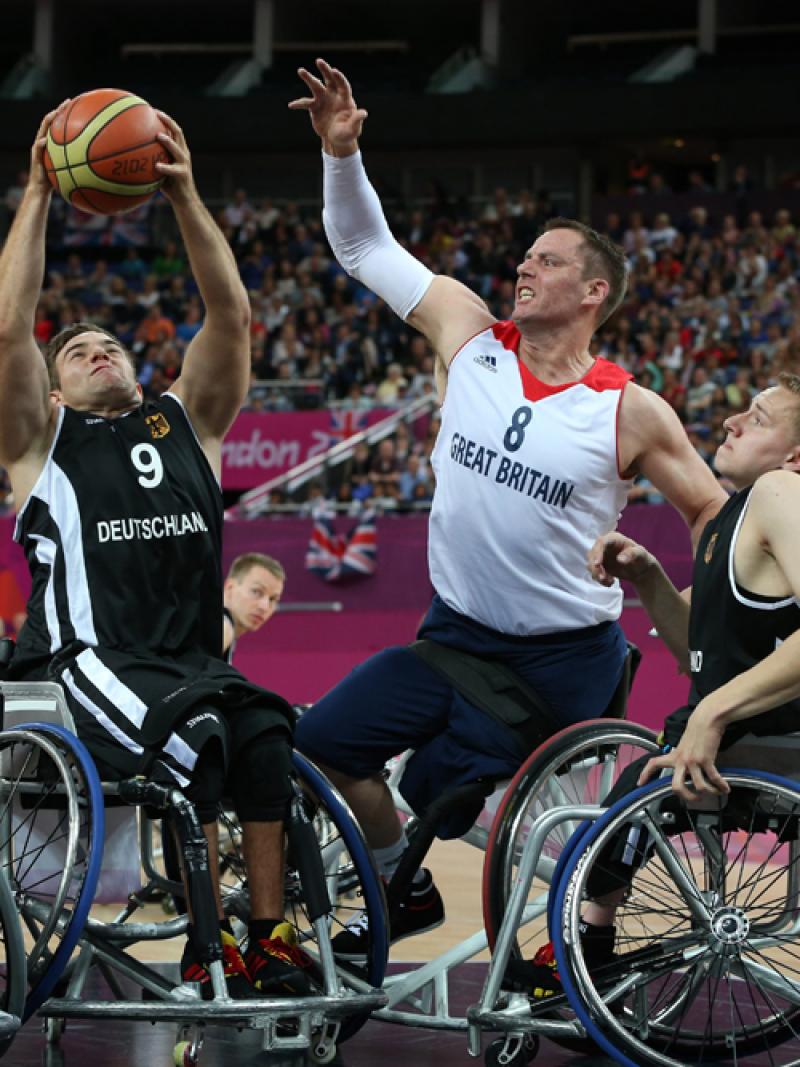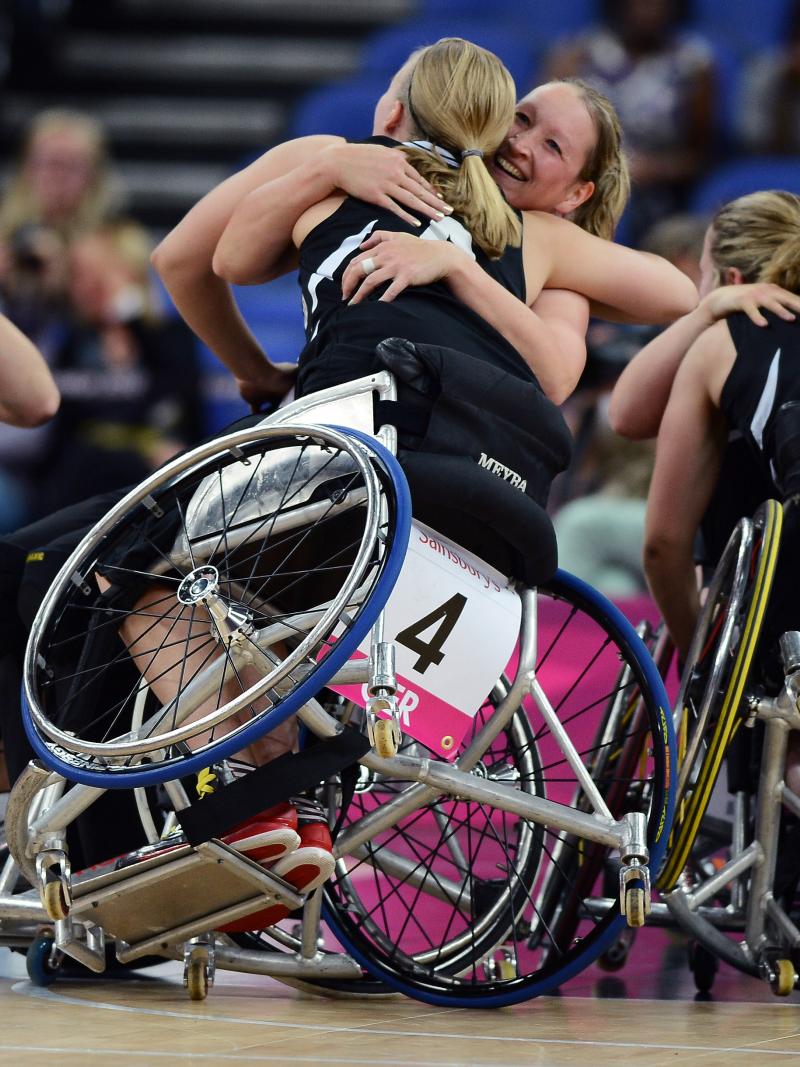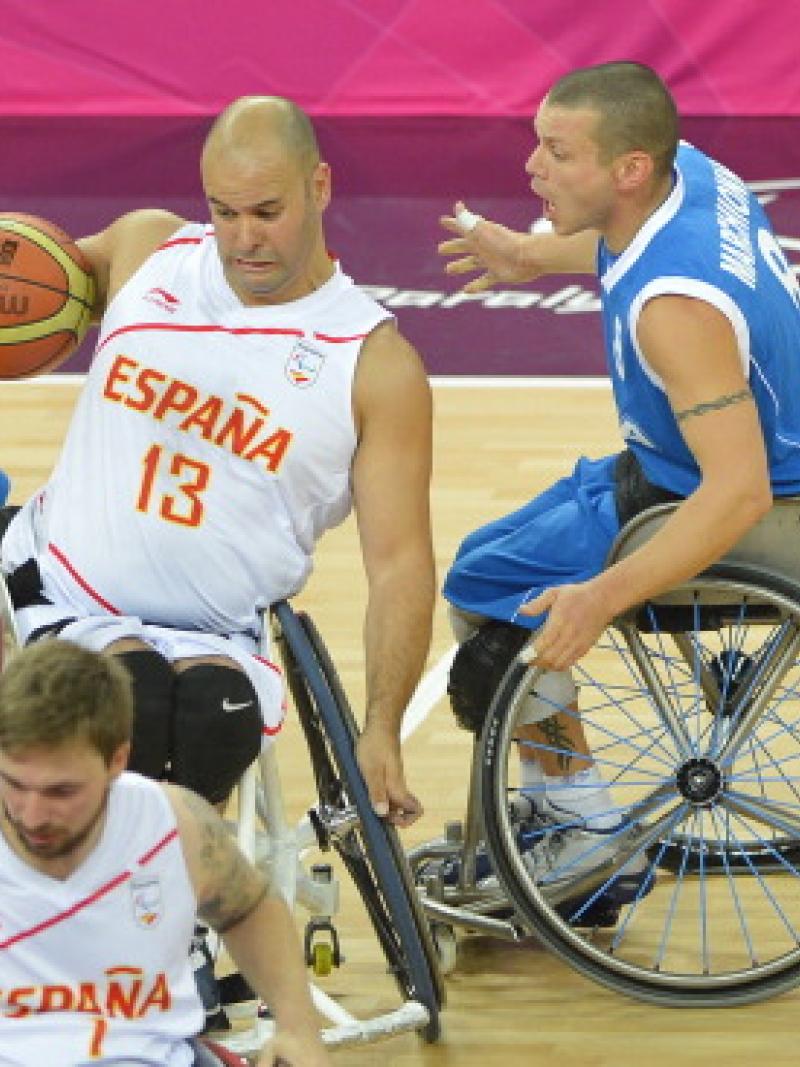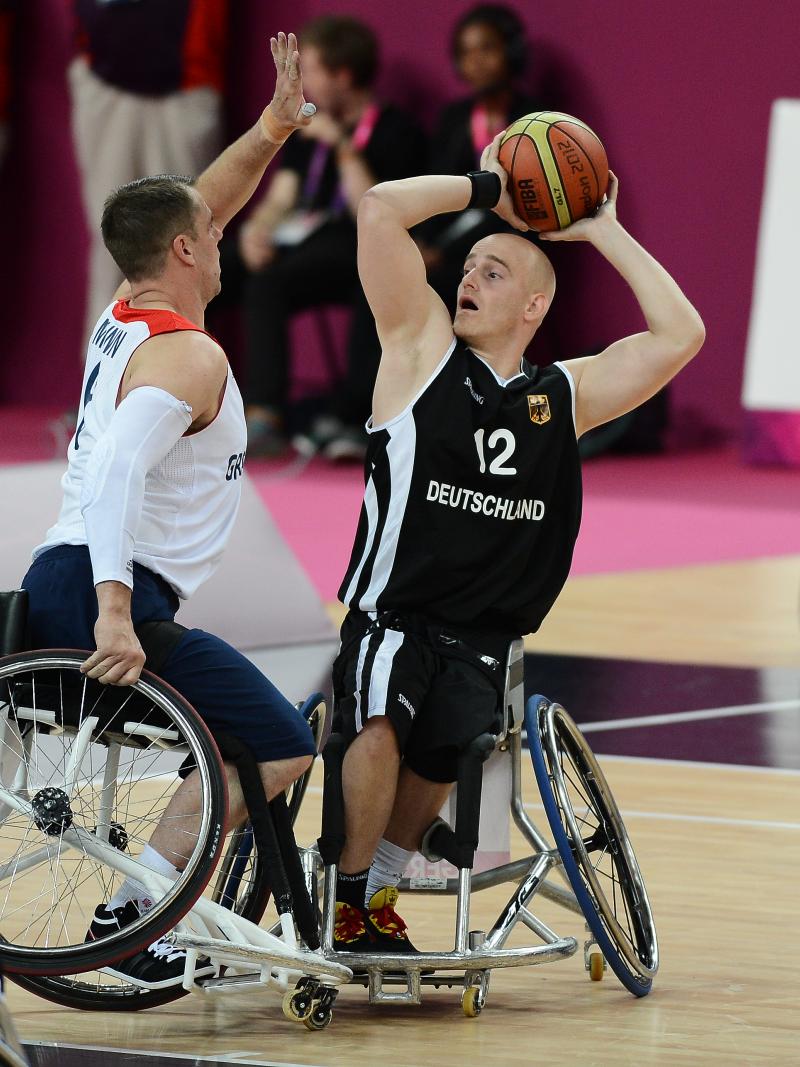Australia’s predictions for IWBF Euros
The top Australian wheelchair basketball players weigh in on who they think will top the podium at the IWBF European Wheelchair Basketball Championships. 26 Jun 2013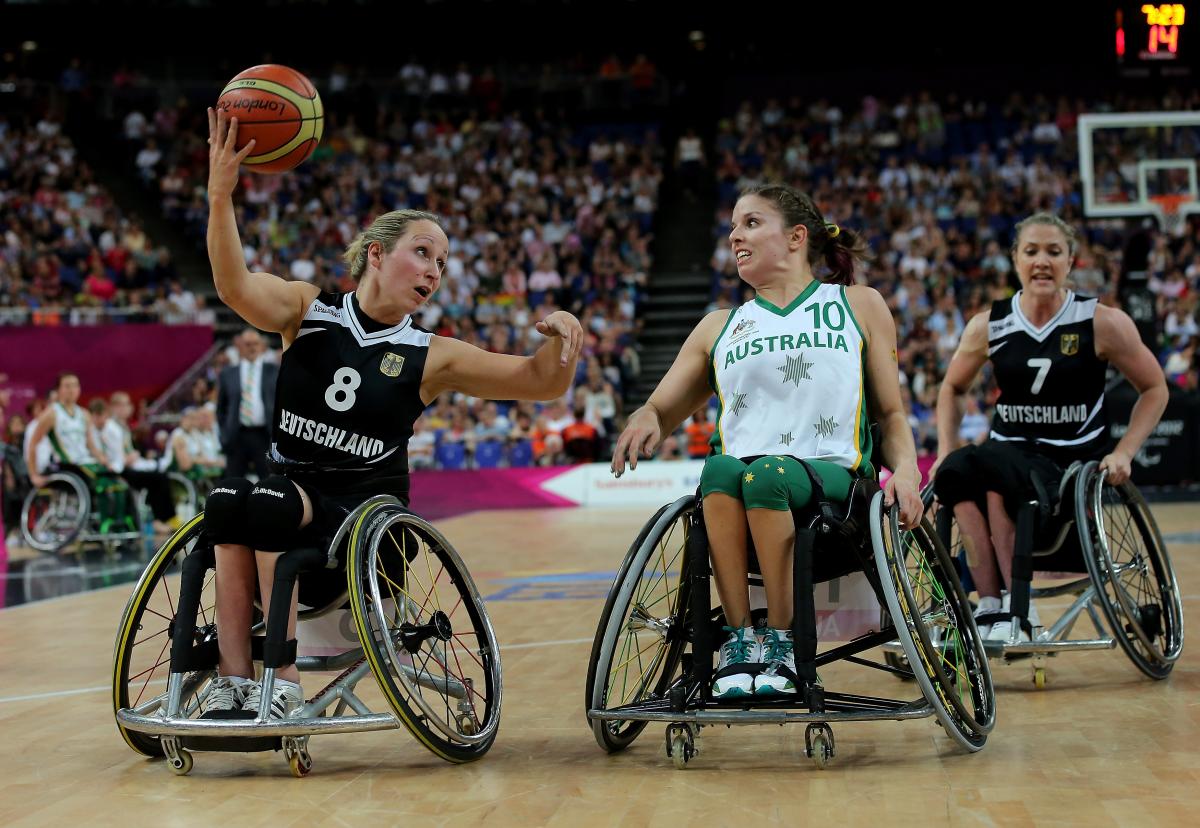
Germany's Annika Zeyen looks for a teammate to pass to during the women's wheelchair basketball gold-medal game against Australia at the London 2012 Paralympics.
“Great Britain is always a tough opponent and they are a better team than their seventh place in London, but I still can’t see the winner coming from outside of Germany or the Netherlands”
With some of their biggest international rivals set to clash at the IWBF Wheelchair Basketball European Championships this weekend, reigning Paralympic silver medallists Australia will be keeping a watchful eye on results from Frankfurt.
Here’s how Australia’s stars see the tournament unfolding in Europe. The tournament begins on Friday (28 June) and runs through 7 July.
Women
Australian forward Amber Merritt rates hosts Germany and the Netherlands as the two teams to beat in the women’s draw.
“After playing them both in London, they are definitely two of the top teams in the world,” said Merritt.
“Germany is a great shooting team and has some really good depth off the bench.
“In the gold-medal game in London we were so focused on Marina Mohnen and Gesche Schunemann that Mareike Adermann came off the bench and top scored for the game. We just couldn’t stop her.”
Merritt said while the bulk of their scoring comes from Mohnen, Schunemann and Adermann, the German low pointers are not to be under rated.
“When Germany plays a full court press, Annika Zeyen is a real asset,” she said. “She has unbelievable speed and doesn’t get credited enough for getting the forwards into a scoring position.”
For the Netherlands, Merritt called veteran Inge Huitzing as their most dangerous player.
“Mariska Beijer got the better of us a little bit in London, but we were really conscious about trying not to let Huitzing shoot the ball,” she said.
Merritt said if she was to pick an upset for the tournament it would come from seven-time European Championships bronze medallists Great Britain.
“Great Britain is always a tough opponent and they are a better team than their seventh place in London, but I still can’t see the winner coming from outside of Germany or the Netherlands,” she said.
Men
Four-time Paralympian and Australian forward Justin Eveson had a tougher time picking a winner in the men’s draw.
“I would have thought Great Britain will probably finish on top of Group A and from Group B it’s tough to split Spain and Turkey,” he said.
Eveson said the Australians are very familiar with the Great Britain team but their results will depend on how they respond to their appointment of new coach Haj Bhania.
“There will be a bit of unknown about them (Great Britain), not only do they have a new coach but they’ve had Jon Pollock retire which takes a quality ball handler and perimeter shooter out of their lineup so they might have to restructure the way they play.”
Eveson spent some time playing for Turkish and European giants Glatasaray SK and said that Turkey’s lower classification players are their biggest strength.
“Gurbulak is Turkey’s best ball handler and shooter, but their biggest strength is their low pointers.
“They push really hard to get to the rack and nine times out of ten will beat other team’s low pointers creating the space for their big guys to come in and score.”
He added that the match of the tournament may very well come during the group stages when Turkey meets Spain on 3 July.
“That will be a really physical contest,” he said.
“They are both very passionate teams and can both get caught up in the emotion of a game and we’ll be keeping a very close eye on both of them over the next four years as we look toward Rio.”





